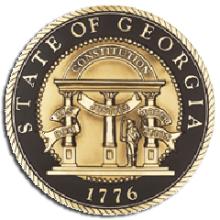Image


"The private sector is handling this exceptionally well," Rogers said. "What they don't need is for a governmental entity to come in and compete with them where these types of services already exist. We're not outlawing a local government entity from doing this, but if they're going to compete, they can play by the same rules and ask the voters if it's okay before they go out and spend all these dollars."We have mapped the states that enacted barriers to community networks,written extensively about level playing field arguments, and even produced a video about the level playing field: As for whether the private sector is providing enough competition or high enough capacity networks, I leave that to individual communities to decide. SB 313 effectively removes such decisions from local communities. It purports to just set additional terms that the public sector must meet, but many of these terms are sufficiently onerous (especially when taken all together) that communities will not be able to build the network they need. The bill first requires communities to ask the private sector to build the necessary network. This ignores the basic fact that community networks are operated with different incentives that privately owned networks. Due to the scarcity in the market, private providers tend to keep prices higher than necessary to maximize their short term profits. Publicly owned networks lower prices (while still paying their costs) in order to spur job creation and increase digital inclusion. The bill requires communities to pass a referendum before building a network and requires inaccurate, damning language be included on the ballot. Broadband referendums tend to invite deep-pocketed incumbent providers to spend heavily to buy the votes necessary to stop competition - see the Longmont saga for an excellent example of how hard it is for a community to stand up to these big cable corporations.
 Communities that somehow get this far are then subject to all the regulations as are private providers in addition to numerous additional regulations imposed on them by this legislation and their inherent duty to operate in an open and transparent manner. Despite being nonprofit, they are required to pay taxes and still face additional barriers that private operators do not.
They will be restricted in how they price their services and where they offer services in ways the private sector is not.
In short, this bill will make it all but impossible for communities to build networks -- even in areas that are presently unserved. The bill purports to exempt some unserved areas, but does so in a cynically evasive way. The only way a community could meet the unserved exemption is if it vowed to only build in the least economical areas -- meaning it would have to be significantly subsidized. Serving unserved areas and breaking even financially almost always requires building a network that will also cover some areas already served (because that is where you can find the margins that will cover the losses in higher expense areas).
The bill is presently in the Senate Regulated Industries and Utilities committee. We will continue covering it and attempt to learn which interests are pushing to revoke local authority and replace it with what distant legislators think best.
Photo used under Creative Commons license, courtesy of Flickr's PhotoPhiend.
Communities that somehow get this far are then subject to all the regulations as are private providers in addition to numerous additional regulations imposed on them by this legislation and their inherent duty to operate in an open and transparent manner. Despite being nonprofit, they are required to pay taxes and still face additional barriers that private operators do not.
They will be restricted in how they price their services and where they offer services in ways the private sector is not.
In short, this bill will make it all but impossible for communities to build networks -- even in areas that are presently unserved. The bill purports to exempt some unserved areas, but does so in a cynically evasive way. The only way a community could meet the unserved exemption is if it vowed to only build in the least economical areas -- meaning it would have to be significantly subsidized. Serving unserved areas and breaking even financially almost always requires building a network that will also cover some areas already served (because that is where you can find the margins that will cover the losses in higher expense areas).
The bill is presently in the Senate Regulated Industries and Utilities committee. We will continue covering it and attempt to learn which interests are pushing to revoke local authority and replace it with what distant legislators think best.
Photo used under Creative Commons license, courtesy of Flickr's PhotoPhiend.